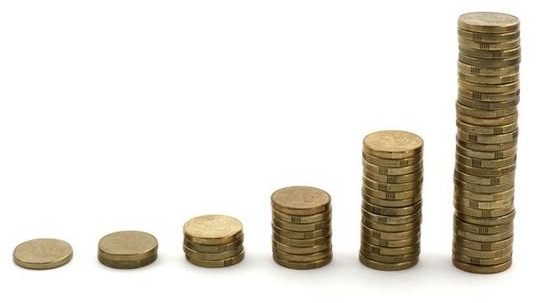I am 31 and discouraged. I’ve been investing into the market every month for the past few years. I have yet to experience the perk of “compound interest”. Am I being impatient?
Compound interest refers to a deposit (or debt) where interest accumulated is added to your principal, causing it to grow. In other words, the interest you make on an investment isn’t paid out to you, it’s rolled back into your account’s total value.
When the interest you earn on an investment is rolled back into your account it then earns additional interest along with your original deposit. You can look at it as the money you made from interest payments effectively growing you account, which causes you to earn more interest. The money you earn as interest is working for you at no extra cost to yourself!
This might be easier to understand with an example. Let’s say you deposit $100 into an investment account and it makes 10% interest each year. At the end of the first year you’ll still have your original $100, plus you’ll have earned $10 in interest. This interest payment gets added to your total so your investment account holds $110 at the end of the first year.
At the end of the second year your account earns another 10% interest, this time on the principal amount of $110, which means you’ve earned $11 in interest in your second year. This again gets applied to your total, bringing you up to $121. At the end of the third year your 10% interest off $121 will be $12, raising your total investment’s worth to $133.
As you can see, the growth of your investment is slowly accelerating over time. After about 8 years you’re going to have just over $210 in your account and be making $21 per year from the interest, all off your initial $100 deposit.
This might not seem like a lot, doubling your $100 to $200 in eight years. But the great thing about compound interest is that your money will continue to double about every 7 to 8 years. After 16 years you’ll have made about $450 from your initial $100 investment. After 24 years your initial $100 would grow to be about $1,000. By year 32 you’ve hit $2,000.
Again, this might not seem like a lot, but remember this is with a tiny, one-time deposit amount of $100. The same principle of doubling about every 8 years still applies with larger numbers. Let’s look at a more realistic example. Imagine you start investing $100 per month ($1,200 per year) at 10% interest.
After the first year you’ll have invested $1,200 and made about $120 in interest. This brings your total investment’s worth up to $1,320. By the end of year 8 you’ll have invested $9,600 and your investment will be worth about $14,000. Again, this might not seem like amazing growth, being up just $4,400 in 8 years, but hang on a bit.
After 16 years of monthly $100 payments, you’ll have deposited $19,200 and your investment will be worth about $43,000. It’s doubling. After 24 years you’ll have paid in just $29,000 but your investment will be worth around $100,000. After another 8 years it doubles again, so your $38,000 worth of deposits will grow in value to be $240,000 by the end of 32 years!
If you continue this trend, up to year 40 then you’ll have paid in just $48,000 and your investment will be worth over $500,000! That’s over ten times what you paid into the fund.
As you can see, since your investment doubles about every 8 years, regardless of how much money is in your account, the biggest factor when it comes to benefiting from compound interest is time. You’ll see almost no benefit to compound interest in the first 10 years, you’ll see a little benefit after 20 years. You’ll see a surge of growth after 20 years and you’ll be benefiting greatly by year 30. The key is time.
In the original question it mentioned the investor had been putting money into funds for a few years. There will be almost zero compound interest during this time. The key is patience. Putting a little money away each month for years, decades even, and letting math do its work is the key. You won’t reap the benefits in this decade, but in 30 years when you retire your future self will be sitting on an investment which has doubled in value four times.
If you’d like to get a sense of how much effect compound interest has, and how quickly it can grow in the latter years of your investing career, there is a handy compound interest calculator which will work out the math for you. You can put in how much money you plan to invest each month and the interest rate to see how much you will have when you retire.

Comments are closed, but trackbacks and pingbacks are open.